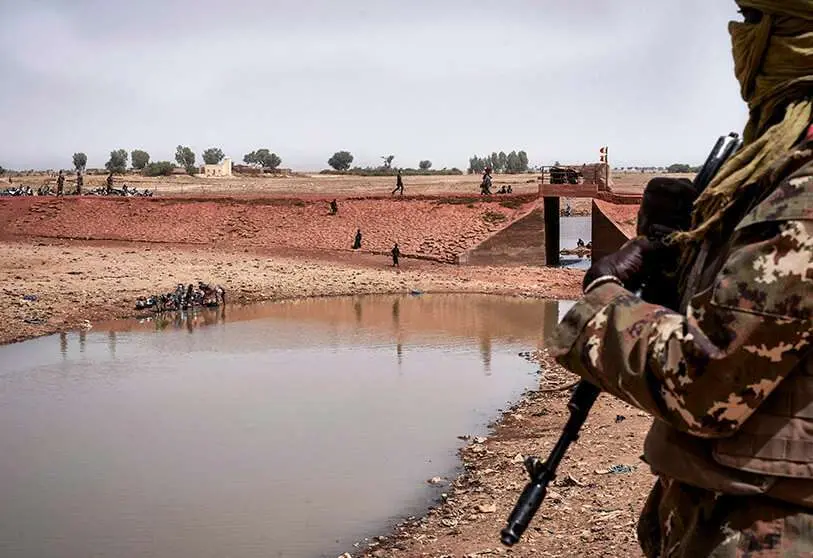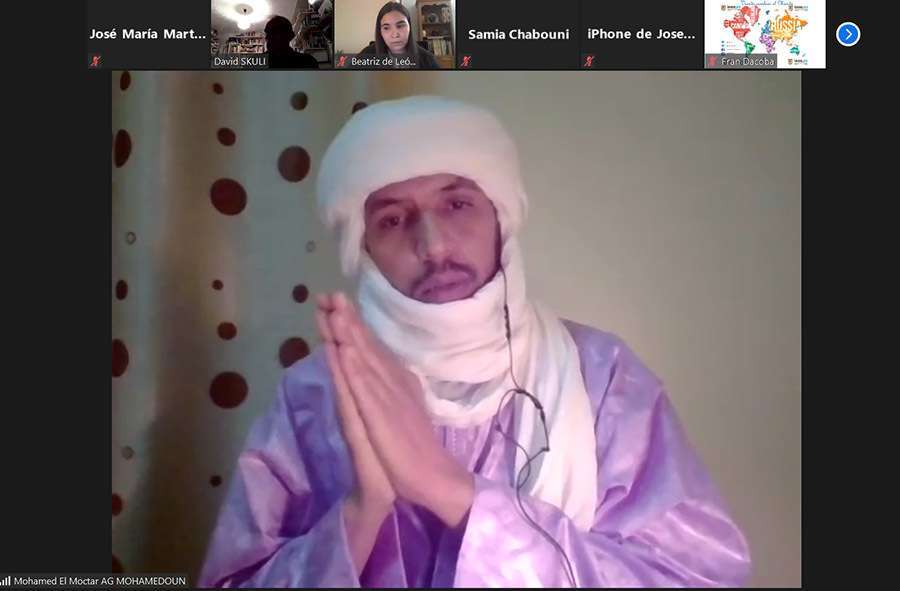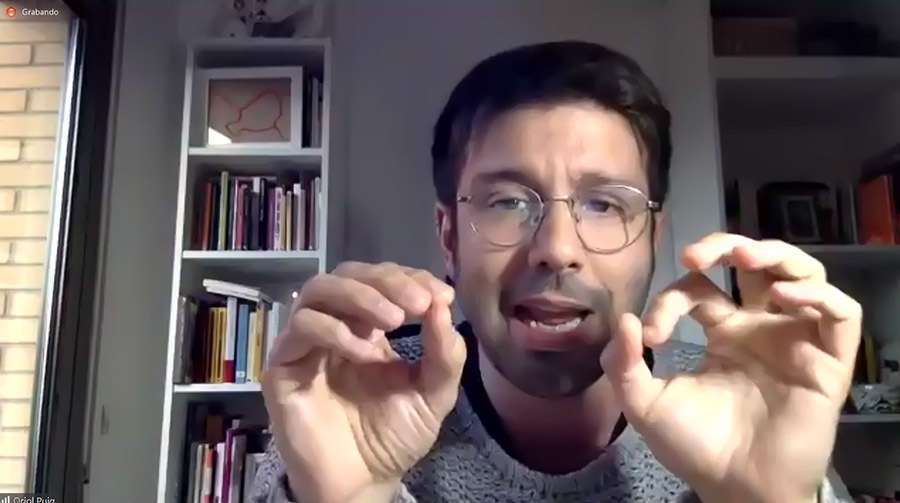Jihadism and climate change, main enemies of Sahel security

Although the Sahel region is going through a period of instability that is nothing new in the region, there are two factors that are of great concern to the region's governments. Jihadist terrorism and climate change are two long-standing threats, but have recently become the two biggest headaches for the Sahel due to recent developments in both. In order to explore these two threats, the Institute of International Politics of the Francisco de Vitoria University has organised a series of meetings under the name of 'Sahel-Europe Dialogue', focusing its second episode, held on Monday 22 March, on jihadist terrorism and climate change, as the two most destabilising elements in the Sahel.

The presentation focused on the climate problem, moderated by María Dolores Algora, PhD in Contemporary History and analyst at the IPI- UFV Institute of the International Security Centre, left many clues as to how to confront this threat. One of them, above all others, was explained by Abakar Mahamat Zougoulou, Scientific and Technical Director of the Pan-African Agency of the Great Green Wall. It is precisely the initiative under the name of the Great Green Wall that aims to combat what he himself considers "a problem of public responsibility" and which he defines as "a project by and for the population, in which the current wealth that still exists must be taken into account".
However, there are some views that try to shed some light on the impact of climate change on the Sahelian terrain. Oriol Puig, PhD in Social Anthropology, states that "there is no scientific evidence that the Sahel is desertifying", that is, there may be a more alarmist view of the situation that is actually being experienced. In addition, Puig wanted to emphasise the consequences of certain actions, such as that of Europe with regard to migration from North Africa, as he believes that they have a counterproductive effect. Moreover, "the European Union must be a fundamental actor in the fight that the Sahel is carrying out against Climate Change", according to the doctor in Social Anthropology.

Issa Garba, coordinator and founder of the Nigerian Youth SDGs Network was another of the most prominent figures during the presentation. In contrast to Oriol Puig, he stated that desertification is already a fact. Not only that, but it was affecting thousands of families who had to leave their homes in search of new regions where "agricultural activity is not a disaster". The fact is that the Sahel's dwindling resources are leaving a large part of the population of the countries that make up the Sahel stranded in a precarious situation that does not seem to have a solution in the short term. However, several of the speakers agree that implementing local policies could be a major turning point in the Sahel's downward trend.
If the solution to climate change is frighteningly complex, the solution to jihadist terrorism is not far behind. The fight against the terrorist organisations that have been ravaging the population for decades, not only in Africa - which, of course, has been the biggest victim - but throughout the world, is critical. Beatriz de León Cobo, a researcher specialising in violent radicalisation in the Sahel and analyst at the IPI- UFV International Security Centre, was somewhat perplexed when she mentioned the emergence of terrorist activity in this region, as she believes that "nobody expected jihadist radicalisation in the Sahel, it was not a region with this ideological tendency".

There is no explanation for the radicalisation that countries such as Mali, which since 2013 has been hit by terrorist activity, are suffering. This is precisely why "10 years ago we couldn't talk about radicalisation", explains Mohamed El Moctar Ag Mohamedoun, professor at the Alioune Blondin BEYE Peace School, expert in inter-community conflict and commissioner of the Truth, Justice and Reconciliation Commission in Mali. In a very short period of time, there has been an escalation in terrorist actions that are difficult to explain. However, one of the causes may lie in the neglect shown by many Sahel countries in terms of education, as Patricia Rodríguez González, director of Child Heroes, has argued: "there are very few measures to curb the radical training of young people".
Of course, not everything is a consequence of education. Aspects such as the fatal management carried out by the different governments in the region in terms of religious fanaticism, as well as the devastating economic situation in which the vast majority of Sahel countries find themselves, are key factors that must be taken into account when analysing the causes of this increase in radicalisation. Mohamed El Moctar himself mentioned the extreme point in which countries such as Mali find themselves, where "jihadists impose their law and people are forced to obey".
This is the extent of a situation for which experts such as those gathered at the 'Sahel-Europe Dialogue' forum are unable to find a source. And even without knowing where the germ that has led to this situation could be found, there is a vision that is as pessimistic as it is realistic that all the speakers share, and which Beatriz Mesa, doctor in the Sahel and journalist and Sahel correspondent, verbalised in the face of the reluctance of the rest of her colleagues to make such a statement: "Violence cannot be fought with violence, it must be negotiated to improve the situation, but there will never be peace in the Sahel".








